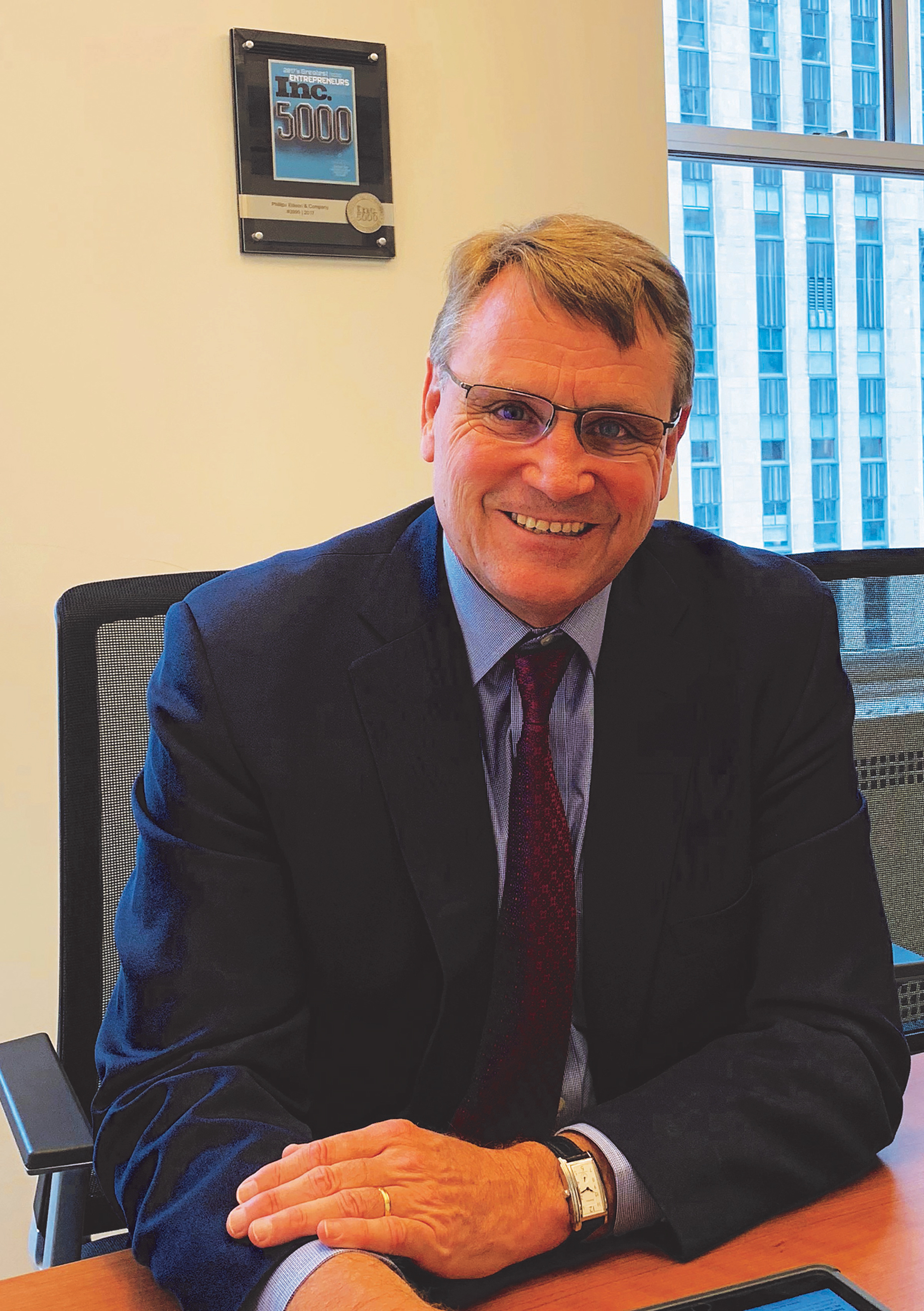Online supermarkets and grocery-delivery services do not make Devin Murphy nervous. His conviction is that grocery shopping will always be a mainly physical-store proposition, and he can cite the numbers to prove it.
Murphy is CFO and treasurer of Phillips Edison & Co., also called PECO, one of the nation’s largest owners of grocery-anchored shopping centers. But he is ready to put his confidence in physical stores to even greater use when he becomes PECO’s president in August.
“If you look at the percentage of grocery sales that are through the Internet today, it is less than 2 percent,” said Murphy. “When you compare that to the amount of sales that are over the Internet in other segments, that is a big difference.” Indeed, it will be a struggle for the proponents of online grocery delivery to succeed, he insists. “The economics of delivering grocery just don’t work, because the average American spends $80 each time [he or she goes] to the grocery store, and the margin in the business is around 2 percent, so there is basically $2 of profit in each visit or each delivery,” he said. “The average cost of delivery is $10 to $15, so unless the retailer is prepared to lose $8 to $13 on every delivery, the math doesn’t work.”
Moreover, Murphy points to Amazon.com’s announcement in March about plans to open physical grocery stores in six U.S. markets — stores that will measure between 30,000 and 35,000 square feet each. “We have heard that in Chicago, [Amazon is] looking for 50 sites, so they are making a meaningful commitment to bricks-and-mortar,” said Murphy. “We view this most recent step, in addition to the Whole Foods acquisition, as a firm statement from the most successful Internet retailer in the world that in order to be successful in grocery retail, you need a bricks-and-mortar strategy.”

Murphy joined PECO in 2013 as CFO, bringing with him 35 years of experience in senior management. He was head of global real estate investment banking at Deutsche Bank Securities for four years, during which time his team executed some 500 transactions, valued in excess of $400 billion in the aggregate. And he was at Morgan Stanley for 18 years, most recently as vice chairman of investment banking. Murphy also ran that firm’s private-capital-markets team, which raised institutional capital for several real estate private-equity funds — as much as $5 billion in equity capital during his tenure. Murphy has also been an independent director of two publicly traded companies and is currently an advisory director for two real estate private-equity firms.
A major focus of Murphy’s when he becomes president will be to apply all of that transactional and capital-raising experience to help keep PECO on the growth track. Over the past six years, the firm has grown in value from less than $1 billion to a currently estimated enterprise value exceeding $6 billion. “I think my depth of experience in terms of raising capital, executing transactions and capital markets is fairly significant and will allow me to be successful in this new role,” Murphy said. “We continue to have very aggressive growth expectations, and I have been tasked with helping our team meet these growth objectives.”
“A major focus of Murphy’s when he becomes president will be to apply all of that transactional and capital-raising experience to help keep PECO on the growth track”
Shortly after joining PECO, Murphy brought in John Caulfield as vice president of treasury and investor relations. In two years’ time, Caulfield was promoted to senior vice president of finance, and now he is set to take over for Murphy in the CFO’s job. “PECO is a company that is obsessed with growth and obsessed with giving our associates additional opportunity,” Murphy said. “John’s moving into the CFO role allows me to spend 100 percent of my time on our growth initiatives, because it takes the CFO responsibilities off of my plate, and we think that is a win-win.”
Some recent consolidations and merger activity helped fuel most of PECO’s growth. In 2017 Phillips Edison Grocery Center REIT I acquired the real estate assets and asset-management business of Phillips Edison Limited Partnership. And last year PECO completed a nearly $2 billion merger with Phillips Edison Grocery Center REIT II, a nontraded REIT it had been advising and managing; PECO also formed a venture with Milwaukee-based Northwestern Mutual called Grocery Retail Partners I, which brought in almost 20 grocery-anchored shopping centers valued at some $359 million in the aggregate.
“When you are a bigger organization, you have the resources to create capabilities that you didn’t previously have,” Murphy said. In fact, PECO has created a “data scientist” position for the purpose of collecting and interpreting data from the firm’s portfolio of roughly 350 centers across 32 states, representing some 6,000 tenants. “We hope that being able to better interpret this data will allow us to make more-informed decisions,” he said.
PECO benchmarks its own performance against nine publicly traded shopping center REITs, based on same-center net-operating income, funds-from-operations per share, and adjusted funds-from-operations per share. “We expect to be a market leader on each of these metrics,” said Murphy.
Murphy says he plans to increase the firm’s investment-management business and raise additional institutional and retail capital. Currently, PECO manages less than $1 billion in assets. “My expectation is that we will be able to grow this business dramatically over the next five years,” he said.
Beyond all this, Murphy will be concentrating also on PECO’s core business, including more development, redevelopment and densification of existing projects. Delivering on all these growth initiatives will surely take a village, Murphy acknowledges. “To win in business, you have to have passion for what you do, and you have to work harder than the competition,” he said.
“It is a team sport, and you need to unlock your team’s true potential so that you can be successful.”
By Ben Johnson
Contributor, Commerce + Communities Today


